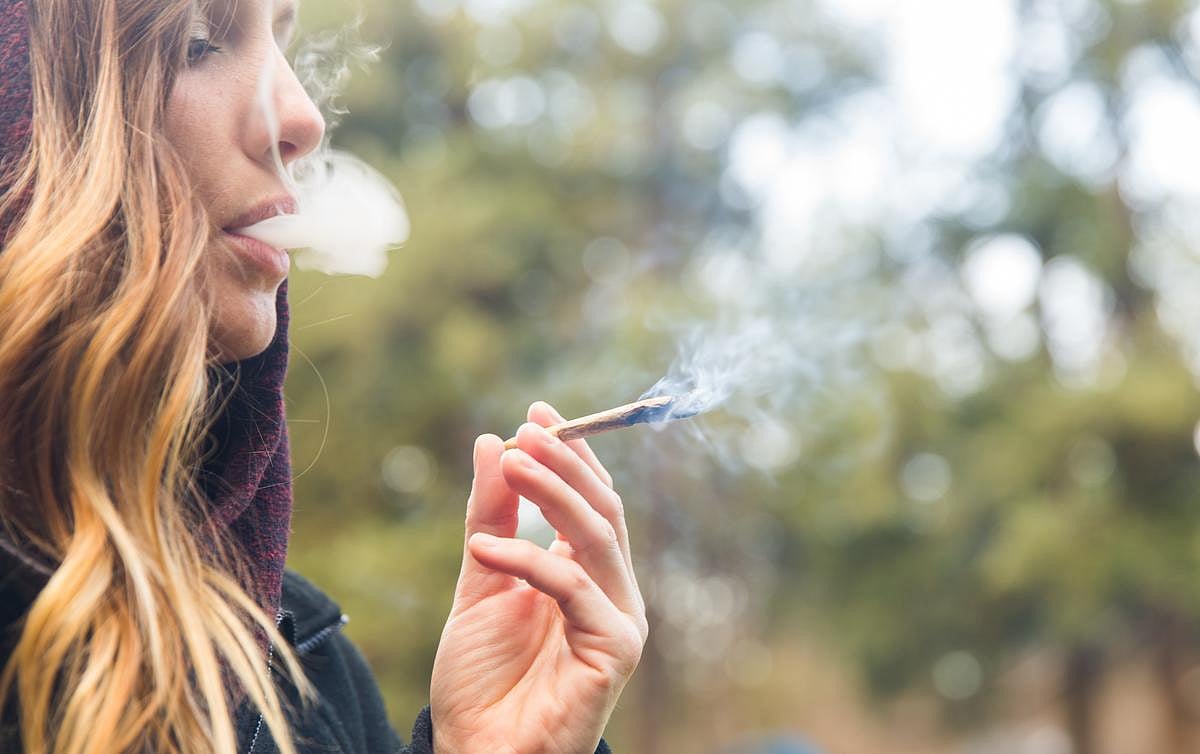Get Healthy!

- Posted April 21, 2025
Biological Link Identified Between Heavy Weed Use And Psychosis
There’s a biological reason why heavy weed users are at increased risk of psychosis, a new study says.
People with cannabis use disorder have higher levels of the hormone dopamine in the same region of the brain tied to psychosis, brain imaging scans have revealed.
“We now have evidence that shows a straight line linking cannabis with dopamine and psychosis that has never been shown before, and it's crucial that clinicians, patients, and families work together to break this line,” said senior researcher Dr. Lena Palaniyappan in a news release. He's an adjunct professor at Western University’s Schulich Medicine & Dentistry in Ontario, Canada.
Dopamine is an important neurotransmitter that helps the brain process motivation, mood, learning and motor control, researchers said in background notes.
“Excess levels of dopamine can disrupt normal brain processes and may increase the risk of psychosis, particularly in individuals who are already vulnerable,” study co-author Betsy Schaefer said in a news release. She's a senior manager of clinical research operations with the London Health Sciences Center Research Institute in Ontario.
Canada legalized recreational weed use six years ago, and concerns have grown since then that heavy use could cause psychotic episodes, researchers said in background notes.
For the study, researchers used a sophisticated MRI technique to track a substance called neuromelanin in the brains of 25 people with cannabis use disorder and 36 people without the disorder.
Deposits of neuromelanin accumulate over time in people’s brains if there’s too much dopamine, showing up as black spots on MRI scans, researchers said. These deposits can help identify brain regions that are being overly affected by dopamine.
“In people partaking in excess cannabis use, those spots are blacker than what they should be for their age compared to healthy individuals,” Palaniyappan said. “This indicates they have high levels of dopamine, and in some cases are showing pigments someone 10 years older would have.”
Specifically, results indicated “an increase of blacker spots in a particular region of the midbrain associated with psychosis — the substantia nigra and ventral tegmental areas,” researcher Ali Khan, an assistant professor at Western University, said in a news release.
“This increase was seen in those with cannabis use disorder regardless of whether they have first-episode schizophrenia,” Khan added.
The study’s results should be used to counsel weed users about the drug’s potential effects, particularly if they are younger, experts said.
“I think this research really helps to provide evidence, or the smoking gun, of what we're seeing clinically and provides clues as to why exposure to cannabis is causing brain changes linked to psychosis,” Dr. Julie Richard, a psychiatrist and physician lead of LHSC's Prevention and Early Intervention Program for Psychosis, said in a news release.
“In the last several years since legalization, we're seeing adolescents who have two or three brief cannabis-induced episodes of psychosis and then have a much more major episode,” added Richard, who was not involved in the research. “So, we're trying to counsel adolescents within that first episode that they're pushing their brain towards a major episode and show them the areas in the brain that are impacted.”
The new study appears in JAMA Psychiatry.
More information
The U.S. Centers for Disease Control and Prevention has more on the health effects of cannabis.
SOURCE: University of Western Ontario, news release, April 9, 2025
